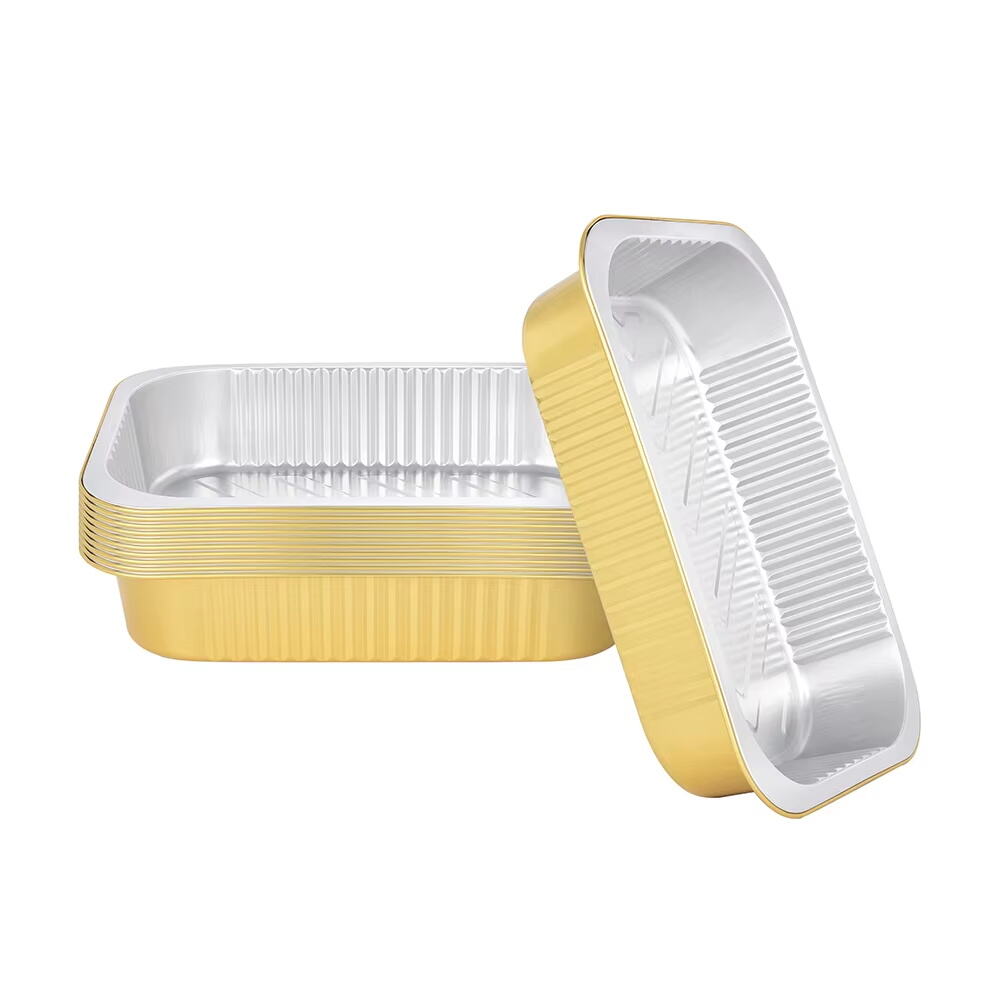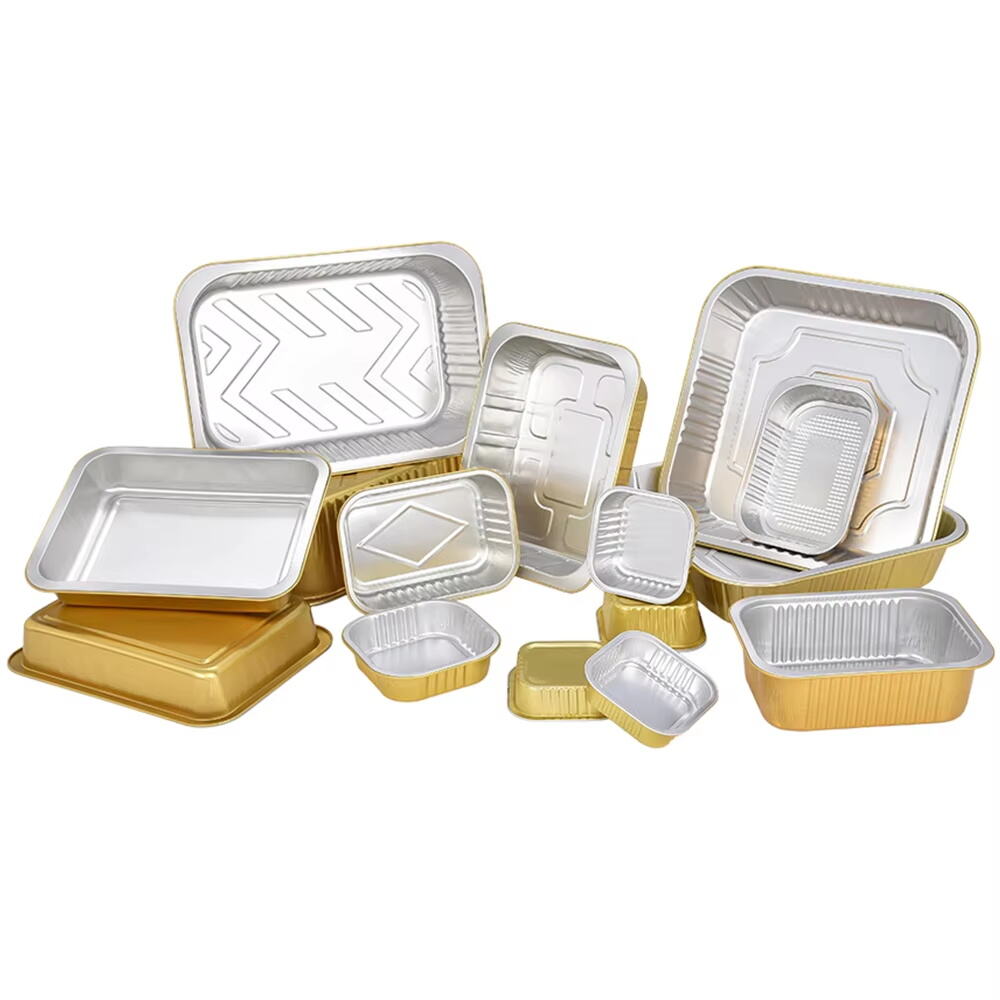The Science Behind Food Preservation in Aluminum Packaging
Food preservation has been a critical concern throughout human history, and modern solutions like aluminum food containers have revolutionized how we keep our meals fresh. These versatile containers offer superior protection against external elements that can compromise food quality. Understanding how aluminum food containers work to maintain freshness reveals why they've become indispensable in both commercial and household settings.
Essential Properties of Aluminum Food Storage
Temperature Control Excellence
Aluminum food containers possess remarkable temperature regulation properties that make them ideal for food storage. The material's natural thermal conductivity allows it to respond quickly to temperature changes, creating an optimal environment for food preservation. Whether storing hot meals or refrigerated items, aluminum containers maintain consistent temperatures more effectively than other materials.
The thermal efficiency of aluminum food containers extends beyond basic storage. When used in commercial kitchens or home meal preparation, these containers can go directly from freezer to oven, maintaining food quality throughout temperature transitions. This versatility helps prevent unnecessary transfers between containers, reducing exposure to contamination and temperature fluctuations.
Barrier Protection Features
One of the most significant advantages of aluminum food containers is their complete barrier protection against external elements. The material creates an impenetrable shield against light, moisture, oxygen, and other environmental factors that can accelerate food spoilage. This comprehensive protection helps preserve food's original taste, texture, and nutritional value for extended periods.
The barrier properties of aluminum food containers are particularly valuable for preventing cross-contamination in commercial kitchens and food service operations. The non-porous nature of aluminum ensures that no bacteria or odors can penetrate the container walls, maintaining the integrity of stored foods.

Environmental Impact and Sustainability
Recyclability Benefits
Aluminum food containers stand out for their exceptional recyclability. Unlike many other food storage options, aluminum can be recycled indefinitely without losing quality. This infinite recyclability makes aluminum food containers an environmentally responsible choice for both businesses and consumers concerned about sustainability.
The recycling process for aluminum containers requires significantly less energy compared to producing new containers from raw materials. This energy efficiency contributes to a reduced carbon footprint, making aluminum food containers an increasingly popular choice in eco-conscious food service operations.
Resource Conservation
The durability of aluminum food containers supports resource conservation efforts. These containers can withstand multiple uses when properly maintained, reducing the need for single-use alternatives. Their lightweight nature also minimizes transportation costs and associated environmental impacts throughout the supply chain.
Many food service businesses are adopting aluminum containers as part of their sustainability initiatives, recognizing the long-term environmental and economic benefits of choosing recyclable and reusable packaging solutions.
Practical Applications in Food Service
Commercial Kitchen Solutions
Professional kitchens rely heavily on aluminum food containers for their versatility and reliability. These containers excel in both hot and cold food storage, making them essential for meal prep, catering services, and restaurant operations. Their stackable design optimizes storage space while maintaining food quality.
Commercial kitchens appreciate the durability of aluminum food containers during busy service periods. The containers can withstand frequent handling, temperature changes, and commercial dishwashing processes without compromising their protective properties or structural integrity.
Home Food Storage Innovation
Home cooks and meal prep enthusiasts benefit from the same professional-grade features that make aluminum food containers popular in commercial settings. The containers' ability to transition seamlessly between freezer, refrigerator, and oven simplifies meal planning and reduces cleanup time.
The portion control aspects of aluminum food containers make them ideal for meal preparation and leftover storage. Available in various sizes, these containers help households reduce food waste while maintaining optimal freshness for each serving.
Food Safety and Compliance
Industry Standards
Aluminum food containers meet strict food safety regulations and industry standards. The material's natural properties prevent chemical leaching and maintain food safety even during extended storage periods. This reliability has made aluminum containers a trusted choice in food service operations worldwide.
Regular testing and quality control measures ensure that aluminum food containers consistently meet or exceed safety requirements. The material's stability and non-reactive nature make it particularly suitable for acidic foods and long-term storage applications.
Hygiene Maintenance
The smooth, non-porous surface of aluminum food containers facilitates thorough cleaning and sanitization. This characteristic is crucial for maintaining proper food safety standards and preventing bacterial growth. The containers can withstand high-temperature washing and sanitizing processes without degradation.
Professional food service operations benefit from the ease of implementing standardized cleaning protocols for aluminum containers. The material's resistance to staining and odor retention helps maintain high hygiene standards across multiple uses.
Frequently Asked Questions
Are aluminum food containers safe for reheating food?
Aluminum food containers are entirely safe for reheating food in conventional ovens. However, they should not be used in microwave ovens as metal can cause arcing and damage to the appliance. When using in conventional ovens, ensure the container is free from damage and follow proper handling guidelines.
How long can food stay fresh in aluminum containers?
Food storage duration in aluminum containers depends on various factors including the type of food, storage temperature, and initial freshness. When properly sealed and refrigerated, most foods can maintain freshness for 3-5 days. In freezer storage, aluminum containers can preserve food quality for several months.
Can aluminum food containers be recycled with regular household recycling?
Yes, clean aluminum food containers can typically be included with regular household recycling. However, it's important to verify local recycling guidelines as requirements may vary by location. Remove any food residue and clean the containers before recycling to ensure proper processing.


